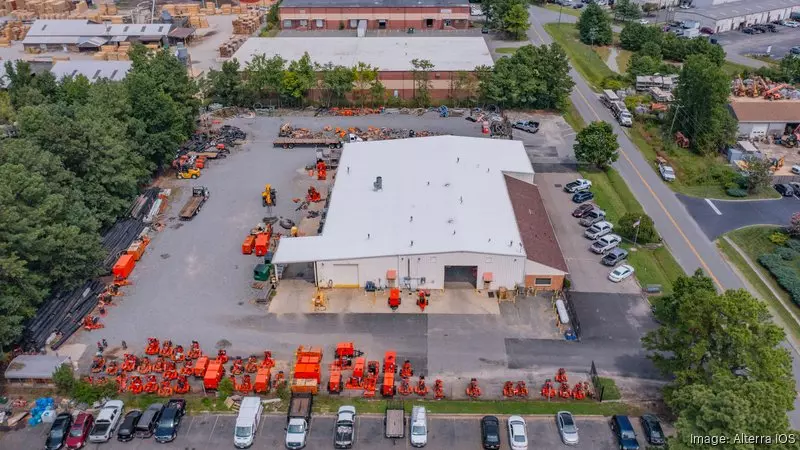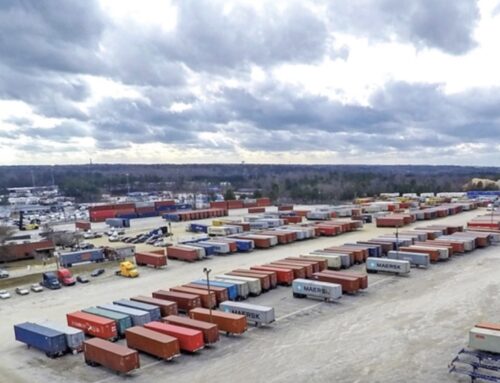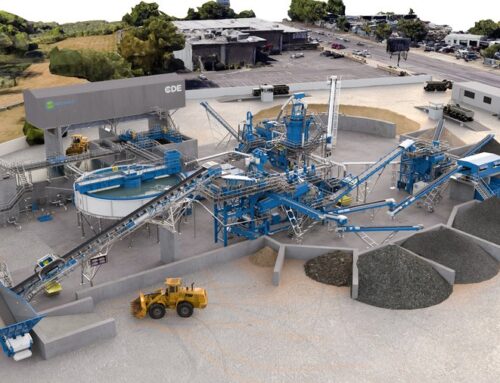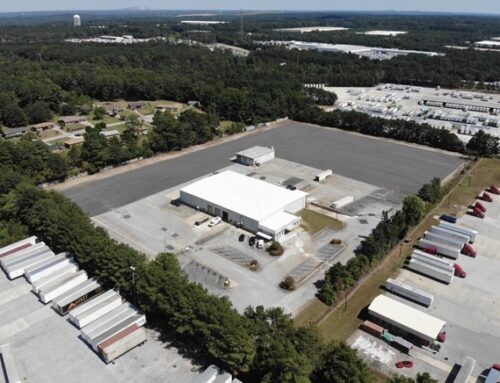By Paul Schwedelson
An industrial outdoor storage site owned by Alterra IOS in Ashland, Virginia.
Alterra IOS, the industrial outdoor storage arm of Alterra Property Group, is now approaching $2.5 billion in assets and continues gobbling up properties in the under-the-radar asset class.
Philadelphia-based Alterra entered the industrial outdoor storage field seven years ago and has taken several strides, especially recently. In the past year, Alterra spent $850 million in acquisitions, buying more than 50 properties and executing more than 60 leases. The company now owns more than 185 industrial outdoor storage properties across more than 30 states.
The real estate firm also known for converting old office buildings into residential and developing ground-up apartment projects in Philadelphia has doubled down on outdoor storage, believing it can be a pioneer in institutionalizing the field.
Industrial outdoor storage is large chunks of land, often near dense industrial clusters close to transportation hubs like interstate highways, airports and ports, where tenants can store heavy equipment. Alterra groups the space into four main categories: container storage, truck and maintenance vehicle storage, building material yards and equipment rental storage yards.
Alterra Managing Partner Matt Pfeiffer said the company is making a push in industrial outdoor storage as it becomes institutionalized, emerging on a national scale.
“We think it’s a long-term competitive advantage in this space,” Pfeiffer said.
An example of the benefits of buying up properties in this asset class is establishing a data set to measure rent. Most classes of real estate are measured in price per square foot. But in industrial outdoor storage, it’s measured in price per acre. And in some circumstances, the full acreage of the property isn’t available to tenants. So the pricing becomes more nuanced, Pfeiffer said.
As a result, data throughout the industry is less transparent than other types of real estate, Pfeiffer said. That means inefficiencies — and opportunity for Alterra.
The play for Alterra is believing in the fundamentals of supply and demand. There’s a finite amount of land that’s zoned for industrial outdoor storage and Pfeiffer said municipalities aren’t allowing more of it because it doesn’t generate the same tax revenue as other land uses.
The supply-demand dynamic, Pfeiffer said, is at the core of Alterra’s thesis.
“Any asset class that has those fundamentals, it’s a good long-term trend for us to focus on,” Pfeiffer said.
The recent increase in e-commerce, putting an emphasis on industrial and delivery services, and the federal infrastructure bill increasing the need for building materials are two more reasons Pfeiffer likes the timing of Alterra’s push.
In 2020, Alterra formed a joint venture with JPMorgan Chase & Co. to spend $300 million on industrial outdoor storage sites. At the time, Alterra Managing Partner Leo Addimando said he wants the company to build a “multibillion-dollar portfolio.”
Alterra last spring closed an oversubscribed $524 million fund, exceeding the original fundraising goal of $400 million, to buy up more of the properties. Investors included public and private pensions, endowment and foundations, asset managers, family offices and high net worth individuals.
Pfeiffer calls Alterra’s strategy on the industry “a multi-decade bet.”
“It wasn’t a trade for us,” he said. “It was a platform and a sector that was going to institutionalize. It wasn’t a one-time real estate trade.”
Most of these types of properties are 3 to 10 acres and often trade for fewer than $15 million. That’s why Pfeiffer thinks the deals have been underrated. Creating a robust portfolio means lots of acquisitions of small properties from non-institutional owners.
In March, for example, Alterra bought a 5-acre site in Rialto, California, in the Inland Empire submarket for $17 million.
Pfeiffer compared the asset class to self storage, manufactured housing and single-family rental homes. Decades ago, these types of real estate weren’t established either. Alterra’s leadership believes industrial outdoor storage is on a similar trajectory.
Pfeiffer said the asset class has been sitting in plain sight.
“You’re going to see a continued institutionalization of this space over the next 10-plus years,” he said. “… It’s harder to aggregate these portfolios and institutionalize than it is single-family residential because there’s more pitfalls with regard to the due diligence of these assets compared to some other traditional sectors.”





